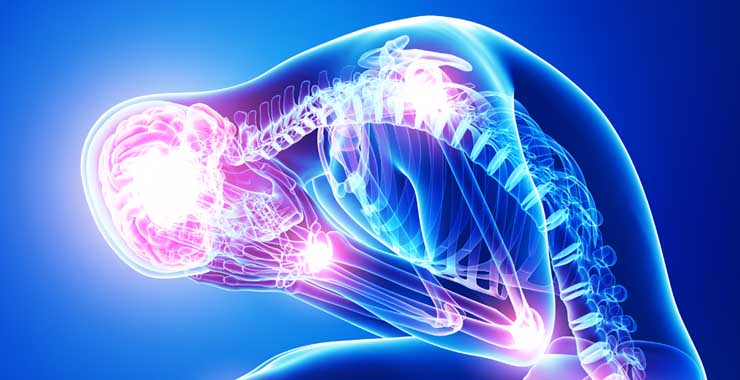- Empty cart.
- Continue Shopping
How Stress Affects Your Body: A Comprehensive Look

Stress is a natural response to challenging situations, but when it becomes chronic or overwhelming, it can have a profound impact on your physical and mental health.
The Stress Response
Before delving into the effects of stress, let’s understand the body’s stress response. When you perceive a threat, whether physical or psychological, your body’s “fight or flight” response is triggered. This response involves the release of stress hormones, primarily cortisol and adrenaline, which prepare your body to respond to the threat.
Effects on the Brain
- Emotional Impact: Chronic stress can lead to mood disorders like anxiety and depression. It can also impair memory and cognitive function.
- Changes in Brain Structure: Prolonged stress may lead to changes in brain structure, affecting areas responsible for regulating emotions and memory.
Effects on the Cardiovascular System
- Increased Heart Rate: Stress hormones can cause your heart to beat faster, raising blood pressure temporarily.
- Blood Pressure: Chronic stress can contribute to hypertension (high blood pressure), increasing the risk of heart disease and stroke.
- Atherosclerosis: Stress may accelerate the development of atherosclerosis, the buildup of plaque in the arteries.
Effects on the Respiratory System
- Rapid Breathing: Stress can lead to rapid, shallow breathing, which may exacerbate respiratory conditions like asthma.
- Panic Attacks: Severe stress can trigger panic attacks, characterized by intense shortness of breath and chest pain.
Effects on the Digestive System
- Digestive Problems: Stress can cause or exacerbate digestive issues like irritable bowel syndrome (IBS), indigestion, and acid reflux.
- Appetite Changes: Stress can lead to overeating or loss of appetite, which may result in weight gain or loss.
Effects on the Immune System
- Suppressed Immunity: Chronic stress can weaken the immune system, making you more susceptible to infections.
- Inflammatory Response: Stress can trigger chronic inflammation, which is linked to various diseases, including autoimmune disorders.
Effects on the Muscular System
- Muscle Tension: Stress often leads to muscle tension and can exacerbate conditions like tension headaches and temporomandibular joint (TMJ) disorder.
- Pain and Discomfort: Chronic stress may contribute to chronic pain conditions, such as fibromyalgia.
Effects on the Skin
- Skin Problems: Stress can worsen or trigger skin conditions like acne, eczema, and psoriasis.
- Premature Aging: Chronic stress may accelerate the aging process, leading to premature wrinkles and skin dullness.
Effects on the Reproductive System
- Sexual Dysfunction: Stress can contribute to sexual problems, including erectile dysfunction in men and reduced libido in both men and women.
- Menstrual Irregularities: In women, stress can lead to irregular menstrual cycles and more severe premenstrual syndrome (PMS) symptoms.
Effects on Sleep
- Insomnia: Stress can disrupt sleep patterns, leading to insomnia and poor sleep quality.
- Nightmares: Stress may cause vivid and distressing nightmares, further impacting sleep.
Effects on Behavior
- Unhealthy Coping Mechanisms: Some individuals turn to unhealthy coping mechanisms, such as overeating, substance abuse, or self-harm, to deal with stress.
Coping with Stress
Managing stress is essential for your overall well-being. Strategies to cope with stress include:
- Mindfulness and Meditation: Practices like meditation and deep breathing can help reduce stress.
- Exercise: Physical activity releases endorphins, which boost mood and reduce stress.
- Healthy Diet: Eating a balanced diet rich in nutrients can support your body’s stress response.
- Social Support: Sharing your feelings and seeking support from friends, family, or a therapist can be beneficial.
- Time Management: Effective time management can reduce stress related to work or daily tasks.
- Limiting Stimulants: Reducing or eliminating caffeine and nicotine can help manage stress.
- Professional Help: In severe cases, therapy or medication may be necessary to manage stress-related mental health conditions.
Conclusion
Stress is an inevitable part of life, but chronic or excessive stress can take a toll on your physical and mental health. Understanding how stress affects your body is the first step in managing it effectively. By adopting healthy coping strategies and seeking support when needed, you can mitigate the negative impact of stress and improve your overall well-being.








